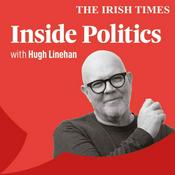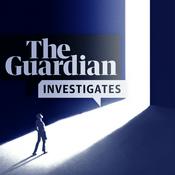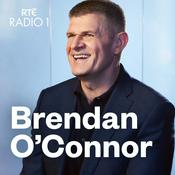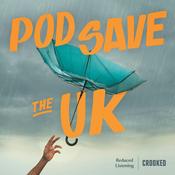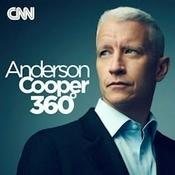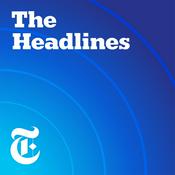579 episodes
- The 2026 men’s football World Cup will be the biggest ever staged. For the first time, 48 teams will compete, playing more than 100 matches across North America.
But the expanded scale comes at a cost. Ticket prices are far higher than at the last World Cup in Qatar. With matches also spread across the US, Mexico and Canada, attending the tournament is becoming unaffordable for many global fans.
FIFA says higher revenues will be reinvested to grow the game worldwide and has released some lower-priced tickets for dedicated supporters, but some fan groups say this isn’t going far enough.
This week on The Inquiry, we’re asking: Is the 2026 World Cup an own goal?
Contributors:
Dr Christina Philippou, associate professor in sport finance at the University of Portsmouth, UK
Dr Victor Matheson, professor of economics at the College of the Holy Cross in Worcester, Massachusetts, US
Dr Johan Rewilak, associate professor of sport management at Loughborough University, UK
Miguel Delaney, chief football writer, The Independent newspaper in the UK
Presenter: Tanya Beckett
Producer: Matt Toulson
Researcher: Evie Yabsley
Editor: Tom Bigwood
Technical Producer: Cameron Ward
Production Management: Phoebe Lomas and Liam Morrey
(Photo: FIFA World Cup Trophy is displayed during the FIFA World Cup 2026. Credit: Pool/Getty Images) - Chennai, São Paulo, Mexico City, Tehran, Cape Town - these cities have all faced the threat of a ‘Zero Day’, or, having no fresh water left in their taps.
The UN says we’re entering a ‘water bankruptcy’ era, meaning our water ‘current accounts’ are running empty, while our ‘savings accounts’ - the long term stores of water deep underground - have been depleted, with some beyond repair.
So how did we get here?
From clearing forests for cattle grazing, to thirsty AI data centres, Rajan Datar examines the pressures on our global water supply and looks for solutions.
Contributors:
Jayshree Vencatesan, Co-founder, Care Earth Trust, India
Augusto Getirana, research scientist at NASA's Hydrological Sciences Laboratory, USA
Prof Bridget Scanlon, Bureau of Economic Geology, University of Texas, USA
Dr Jie-Sheng Tan Soo, Director, Institute for Environment and Sustainability, National University of Singapore
Presenter: Rajan Datar
Producer: Phoebe Keane
Researcher: Evie Yabsley
Editor: Richard Fenton-Smith
Technical Producer: Cameron Ward
Production Management Assistant: Liam Morrey
(Photo: Indian women with empty plastic pots protest as they demand drinking water. Credit: Arun Sankar/Getty Images) - Bangladesh will hold a national election in February, after years of political turmoil and the ousting of long-time leader Sheikh Hasina. Her rule of more than a decade delivered strong economic growth but was also accompanied by tighter political control and repeated confrontations with protesters.
Sheikh Hasina’s party, the Awami League, has been banned. This has brought renewed focus on the Bangladesh Nationalist Party’s leader Tarique Rahman, who is the son of former prime minister Khaleda Zia, as well as several emerging challengers.
Following years of unrest, the vote is seen as a test of whether Bangladesh can move towards political stability.
This week on The Inquiry, we’re asking: What does the national election mean for the future of Bangladesh?
Contributors:
Shaheen Mamun, Executive Director of the Jargoron Foundation, London, UK
Zia Chowdhury, journalist, Dhaka, Bangladesh
Rounaq Jahan, Distinguished Fellow at the Centre for Policy Dialogue, Dhaka, Bangladesh
Constantino Xavier, Senior Fellow at the Centre for Social and Economic Progress, New Delhi, India
Presenter: Tanya Beckett
Producer: Matt Toulson
Researcher: Evie Yabsley
Editor: Tom Bigwood
Technical Producer: Cameron Ward
Production Management Assistant: Liam Morrey
This programme has been updated since the original broadcast.
(Photo: A woman casting her ballot during the 2024 national election in Bangladesh. Credit: Ahmed Salahuddin/NurPhoto via Getty Images) - Boosting, swiping or the five finger discount - many countries around the world are seeing a rise in retail theft.
From Japan to the UK, the USA to Germany, retailers are struggling to tackle shoplifting - but the factors fueling this trend are as varied as the people carrying out these crimes. Poverty, opportunism, thrill-seeking - and technology - are some of the factors experts say are to blame.
But a more costly problem is the rise in organised crime, as gangs of thieves strategically target shops and steal to order, turn to online marketplaces to anonymously sell on stolen goods for big profits.
Charmaine Cozier reveals how the justice system and surveillance technology are being used to combat this rising crime wave, as The Inquiry asks what’s behind the rise in shoplifting?
Contributors:
Dr Nicole Bögelein, sociologist at the University of Cologne, Germany
Assistant Chief Constable Alex Goss, national lead for retail crime at the UK National Police Chiefs Council
Tony Sheppard. Vice President of Retail Risk Solutions at Think LP, USA
Khris Hamlin, Retail Industry Leaders Association in the USA
Presenter: Charmaine Cozier
Producer: Phoebe Keane
Researcher: Evie Yabsley
Editor: Richard Fenton-Smith
Technical Producer: Cameron Ward
Production Management Assistant: Liam Morrey
(Photo: A warning sign in Canada. Credit: NurPhoto/Getty Images) - Iran has been shaken by protests on a scale not seen since its 1979 revolution.
Demonstrations that began in the country’s capital over the state of the economy have spread to multiple cities, with wider calls for political change.
The government has called the demonstrations "riots" backed by the nation’s enemies.
Thousands have been killed.
For some, the scenes bring back memories of the uprising that toppled the monarchy more than four decades ago.
Crown Prince Reza Pahlavi, the exiled son of Iran’s last monarch, has emerged as a figure that could challenge the existing order.
This week on The Inquiry, we’re asking ‘Is history repeating itself in Iran?’
Contributors:
Naghmeh Sohrabi, modern Middle East historian, director for research at the Crown Center for Middle East Studies at Brandeis University, United States
Azadeh Kian, author of ‘Rethinking Gender, Ethnicity and Religion in Iran’, emerita professor of sociology and gender studies at the University of Paris Cité, France
Sara Bazoobandi, non-resident research fellow at the Institute for Security Policy of Kiel University, Germany
Siavash Ardalan, BBC Persia senior reporter, United Kingdom
Presenter: Daniel Rosney
Producer: Megan Lawton
Technical producer: James Bradshaw
Editor: Tom Bigwood
Production Management: Phoebe Lomas and Liam Morrey
(Photo: Car on fire on a street in Iran. Credit: WANA/Reuters/BBC Images)
More News podcasts
Trending News podcasts
About The Inquiry
The Inquiry gets beyond the headlines to explore the trends, forces and ideas shaping the world.
Podcast websiteListen to The Inquiry, The David McWilliams Podcast and many other podcasts from around the world with the radio.net app

Get the free radio.net app
- Stations and podcasts to bookmark
- Stream via Wi-Fi or Bluetooth
- Supports Carplay & Android Auto
- Many other app features
Get the free radio.net app
- Stations and podcasts to bookmark
- Stream via Wi-Fi or Bluetooth
- Supports Carplay & Android Auto
- Many other app features


The Inquiry
Scan code,
download the app,
start listening.
download the app,
start listening.




